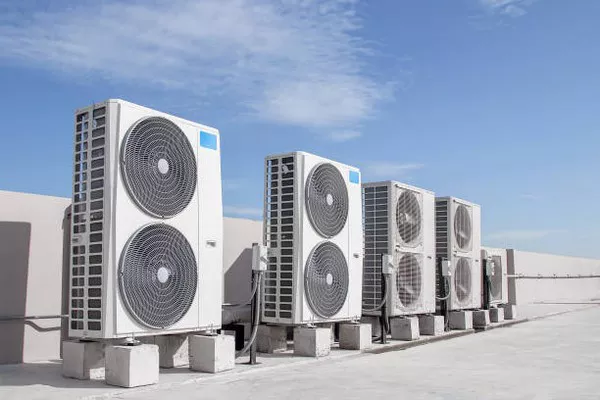In both residential and commercial buildings, air conditioning systems play a pivotal role in maintaining comfortable indoor environments, particularly during warmer months. The AC compressor is a crucial component of these systems, responsible for pressurizing refrigerant to cool the air. Understanding the location of the AC compressor is essential for proper maintenance and troubleshooting. This article explores the typical placement of AC compressors in various settings to provide clarity and insight.
Residential Settings:
In residential settings, AC compressors are commonly located outside the home. This placement is preferred for several reasons, including noise reduction and space optimization. Placing the compressor outdoors minimizes the transmission of noise indoors, ensuring a quieter living environment. Additionally, outdoor placement frees up indoor space that would otherwise be occupied by bulky HVAC equipment.
Typically, residential AC compressors are positioned adjacent to the home’s exterior walls. This placement allows for easy access for maintenance and servicing while minimizing visual obstruction. In many cases, compressors are installed on concrete pads or platforms to provide stability and elevation, protecting them from ground-level debris and moisture.
Moreover, residential AC compressors are often placed strategically to optimize airflow and ventilation. Adequate clearance around the compressor is essential to ensure proper air circulation, preventing overheating and optimizing performance. Landscaping and fencing are often designed with this consideration in mind, allowing for sufficient airflow without compromising aesthetics.
Commercial Settings:
In commercial settings, the location of AC compressors varies depending on factors such as building size, layout, and HVAC system design. Unlike residential properties, commercial buildings may have multiple AC compressors distributed throughout the premises to accommodate larger cooling loads.
In many commercial buildings, AC compressors are housed in mechanical rooms or equipment closets located on the lower floors or basements. These designated spaces are equipped with ventilation systems and access points for maintenance personnel. Placing compressors in these centralized locations facilitates maintenance and repairs while minimizing disruption to building occupants.
Alternatively, some commercial properties feature rooftop AC compressor installations. Rooftop placement offers several advantages, including space efficiency and noise reduction. By situating compressors on the roof, valuable indoor space is preserved for other purposes, such as offices or retail areas. Additionally, the distance from occupied spaces reduces noise transmission, contributing to a more comfortable indoor environment.
Factors Influencing Placement:
Several factors influence the placement of AC compressors in both residential and commercial settings:
Noise Considerations: Minimizing noise transmission to occupied spaces is a priority, especially in residential settings. Placing compressors outdoors or in designated mechanical rooms helps mitigate noise pollution.
Accessibility: Easy access for maintenance and servicing is essential to ensure optimal performance and longevity of AC compressors. Strategic placement in accessible locations facilitates routine maintenance and troubleshooting.
Ventilation and Airflow: Proper airflow around AC compressors is crucial for efficient operation and heat dissipation. Placement considerations include clearance requirements and ventilation to prevent overheating.
Space Constraints: Limited indoor space may necessitate outdoor or rooftop compressor installations, especially in commercial settings where maximizing usable space is essential.
Aesthetic Considerations: In residential settings, the visual impact of AC compressor placement is often a consideration. Landscaping and screening may be employed to conceal compressors while maintaining functionality.
See Also What Does A Compressor Do In HVAC
Conclusion:
The location of AC compressors in residential and commercial settings plays a significant role in system performance, maintenance, and occupant comfort. Whether installed outdoors, in mechanical rooms, or on rooftops, careful consideration of factors such as noise, accessibility, ventilation, and space constraints is essential. By understanding the optimal placement of AC compressors, property owners and facility managers can ensure efficient cooling systems and a comfortable indoor environment for occupants.

